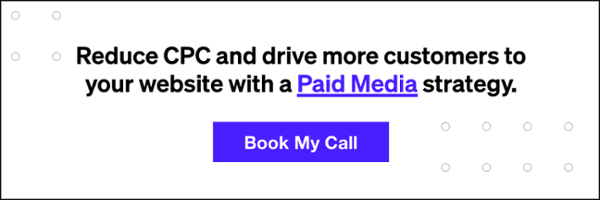Keyword Research Tips for the PPC Beginner
If you are anything like me, then building your first Pay-Per-Click (PPC) campaign seemed like a daunting task. You may be wondering where to start or how to know if you are doing things the right way. Well fear no longer as I’ll walk you through some of the tools and strategies I’ve learned during my time here at Power Digital Marketing.
The goal of every PPC campaign should be to show your ads to potential consumers who are most likely to click on your ad, and subsequently convert. This goal can be more easily accomplished by conducting thorough keyword research. It is for this reason that keyword research is the foundation of every good PPC campaign.
Keyword research involves the discovery of search terms related to your product or service that possible customers may type into the Google Search Network. Relevancy is crucial here because Google uses your keywords, along with other factors, to determine your ad’s quality score and placement.
Related: Top 5 Best Practices for Paid Search
Now, this whole thing may seem simple, right? The reality is that conducting keyword research may become excessively time consuming and every PPC campaign has its share of constraints that can make your life difficult. To prevent your experience from becoming overly frustrating, let’s dive into the process.
Google Trends
Google trends should be your first stop in the keyword research process. The creators of this tool (Google) define it as, “a public web facility of Google Inc., based on Google Search, that shows how often a particular search-term is entered relative to the total search-volume across various regions of the world, and in various languages.” Google Trends grants you incredible insight into the minds of your audience and will help get the research process up and running.
Let’s illustrate this by using a fitness app for example:
By simply typing “fitness apps” into the search bar, you’re instantly shown multiple pieces of information that are useful for building campaigns. Regions can be used for location targeting and related queries lay out additional keywords that can help build out your campaign. It’s important to keep note of all applicable queries as they will play a substantial role in the next tool.
Keyword Planner
Using the Keyword Planner consists of entering your product/ service, along with other relevant keywords, into the platform which then generates a list of related keywords. The Keyword Planner goes a step beyond Google Trends by showing the average monthly searches, competition levels, and suggested bids for each keyword.
Related: The Four People Every PPC Team Needs to Succeed
You’ll want to use this data to begin the campaign build process. It’s important to note that average monthly searches and competition level should have your full attention. You may think that keywords with the highest number of monthly searches will show your ads to more potential customers and lead to conversions. While that could very well be the case, keywords with such high volume will run through your budgets and prevent your ads showing every time they possibly could.
High competition means that many other competitors are bidding on that keyword and there are major fluctuations in its cost-per-click (CPC). Again, selecting these keywords will raise your costs and stress your budgets.
With the keyword “fitness,” the average monthly searches are over 1.2 million. Even with a relatively low bid of $0.54, that level of volume will accrue exorbitant costs. That being said, you’ll want to find keywords with moderately high search volume and low – medium competition to ensure that your budget remains in check.
Related: 3 Excel Formulas to Master Before Getting a Job in Paid Media
Once you’ve compiled the number of keywords you deem necessary, the Keyword Planner allows you to export all your data and you can create the shell of your campaign.
Search Query Reports
Let’s say you’ve done your due diligence and have your campaign and ads up and running. While you may be ready to sit back and watch all of your hard work pay off, the strongest of campaigns are continually being optimized.
One of the best ways to discover new keywords for existing campaigns is to analyze search query reports from the Google AdWords platform. To get here, you’ll simply go to the ‘Keyword’ tab in the AdWords interface, select ‘Search Terms’, and filter for queries that have converted.
These reports show you the exact search queries someone looked up that triggered your ad, the amount of times it showed and was clicked on, and how many times it converted. So, what makes this so useful?
Related: Google Display Network (GDN) Best Practices
This information can be used to discover long-tail keywords that have proven to convert. These new long-tail queries should be added to your campaign as exact match keywords with increased bids. This process, which we call Keyword Expansion here at Power Digital, should be executed on a regular basis. By continuing to build your campaign through this practice, your campaign will become a well-oiled machine and you’ll achieve your goal of a prosperous campaign.


















